Overview

- Act: Kenyatta University Act of 1985
- Formed: 1985
- VC: Prof. Waceke Wanjohi, Ph.D., FRSB, FKNAS
- X (Twitter)
Kenyatta University, established under the Kenyatta University Act of 1985, began its operations as a fully-fledged public university the same year. Initially founded in 1965 as Kenyatta College, it was an institution for teacher training. In 1972, it became a constituent college of the University of Nairobi, offering bachelor’s degrees in education. Gaining
full university status in 1985 marked its transformation into a comprehensive institution of higher learning. Today, it is one of Kenya’s leading universities, offering diverse programs and contributing significantly to education, research, and community service.
CEO: Prof. Waceke Wanjohi, Ph.D.,
Prof. Waceke Wanjohi is a full Professor of Plant Pathology at Kenyatta University
with over 35 years of experience in academia. She holds numerous fellowships,
including the Royal Society of Biology and Kenya National Academy of Sciences. She
has held leadership roles such as Deputy Vice Chancellor (Academic) and Acting
Vice Chancellor.

Management Team

Prof. Waceke Wanjohi
Ag. Vice-Chancellor
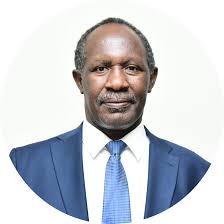
Prof. James Biu Kung’u
Ag. Deputy Vice-Chancellor (Academic)
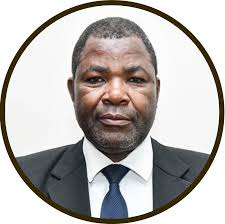
Prof. Nelson Wawire
Ag. Deputy Vice-Chancellor (Administration and Finance)
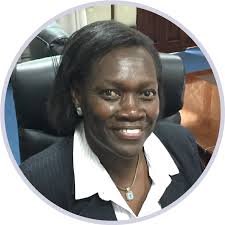
Prof. Caroline Lang’at Thoruwa
Ag. Deputy Vice-Chancellor (Research, Innovation and Outreach)
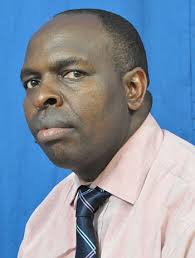
Prof. Benard Muthiani Kivunge
Registrar (Academic)

Dr. Paul Mwangi Gachanja
Registrar (Administration and Finance)
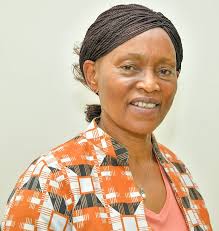
Prof. Grace Bunyi
Ag. Registrar (Corporate Affairs)

Prof. Richard O. Oduor
Registrar (Research, Innovation and Outreach)
Samuel Mwai
Chief Finance Officer
Board of Governors
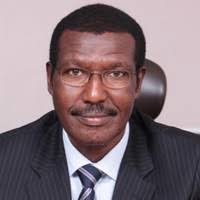
Dr Ben Chumo PhD.,
Chairman
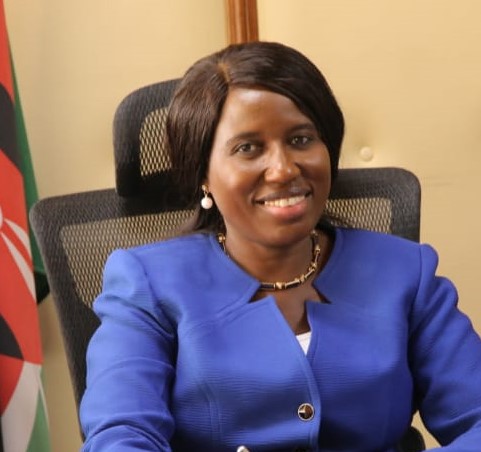
Dr. Beatrice Muganda Inyangala
P.S, State Department for University Education
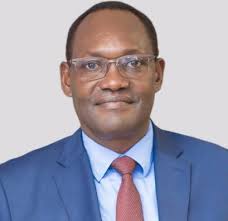
Dr. Chris Kiptoo
P.S, The National Treasury
Andrew Angenga Nyanchoga
Member
Alice Waruguru Muita
Member
Major General (Rtd) Bashir Yussuf Haji
Member
Weru Macharia
Member

Prof. Waceke Wanjohi,
Vice-Chancellor
Functions
- Teaching and Training: Deliver high-quality education through diverse undergraduate, postgraduate, and professional programs across various disciplines to develop skilled and knowledgeable graduates.
- Research and Innovation: Undertake advanced research to generate new knowledge, solutions, and innovations that address local, regional, and global challenges.
- Degree and Certification: Award degrees, diplomas, certificates, and other academic distinctions to recognize academic excellence and professional qualifications.
- Curriculum Development: Design, review, and implement curricula that align with industry demands, global trends, and national development priorities.
- Community Service and Outreach: Engage in community initiatives such as health campaigns, education programs, and environmental conservation to promote societal well-being.
- Policy Development and Advocacy: Contribute to national and international policy formulation through research findings, expert opinions, and scholarly input.
- Cultural Preservation and Promotion: Promote Kenyan cultural heritage and diversity through academic programs, arts, and research.
- Institutional Collaborations: Establish partnerships and collaborations with local and international universities, industries, and organizations to enhance academic and research opportunities.
- Student Support and Development: Provide a supportive environment for students’ holistic development, including mentorship, counseling, sports, and leadership programs.
- Capacity Building and National Development: Train professionals to meet the human resource needs of various industries, thereby contributing to Kenya’s socio-economic development.
Important Links
Address & Contacts
- Kenyatta University
- P.O. Box 43844-00100 Nairobi, Kenya.
- info@ku.ac.ke
- +254 20 8703000|+254 20 8704000| +254 20 8710901